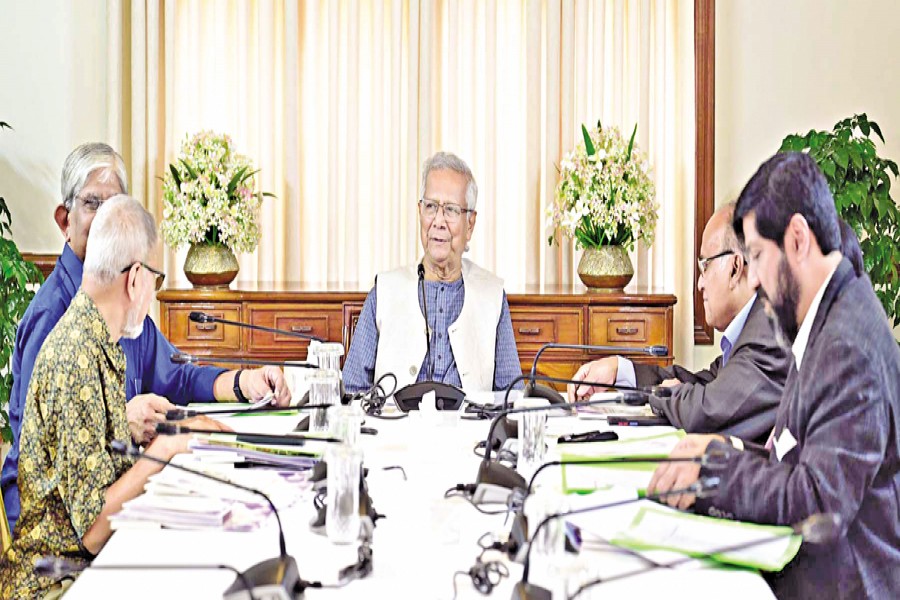
Published :
Updated :

The interim government has taken five key decisions, including "effective reforms" to the capital market with the help of foreign experts having no stakes in the local market.
The decisions were taken on Sunday when Chief Adviser (CA) Muhammad Yunus sat with top brass of the government to discuss the market.
Dr. Salehuddin Ahmed, finance adviser, Anisuzzaman Chowdhury, special assistant to the CA, Md Siraj Uddin Mia, principal secretary, Ms Nazma Mobarek, secretary of the Financial Institutions Division (FID), and Khondoker Rashed Maqsood, chairman of the Bangladesh Securities and Exchange Commission (BSEC), attended the meeting at the CA's residence Jamuna.
After the meeting, the CA's press secretary Shafiqul Alam told the media that the decisions were meant to benefit all groups of investors and the market as well -- not any particular quarters.
He said the CA had instructed the authorities concerned to take measures for the listing of profitable state-owned enterprises (SoEs) and multinational companies (MNCs), such as Unilever Bangladesh, where the government has stakes. The government has a 39.25 per cent stake in Unilever Bangladesh.
Such MNCs may be listed by the offloading of government's shares in the secondary market, the meeting discussants said.
Market stakeholders say the interim government should be able to facilitate listing of the SoEs as there are now no vested quarters and political influence that may come in the way.
The press secretary said there are many good-performing local companies with a turnover worth billions of dollars, owned by large business conglomerates, such as City Group and Meghna Group.
He said the incentives that could bring those companies to the capital market were discussed at the meeting and the participants were asked to take measures for listing such potential local companies.
Reforms often are not effective as vested quarters stand against them. "That's why the CA spoke about a 'deep' reform in the market through a panel of foreign experts, who have no stakes in the local market, within three months," Mr Alam said.
The CA in the meeting also said hefty bank financing should be discouraged and business financing should instead be done through bonds or IPOs (initial public offerings).
On complaints against stock market agencies, the press secretary said, "The CA suggested actions against wrongdoers in a bid to deliver a message that no irregularities would be tolerated".
Mr Alam said vested quarters had committed "large robberies" in the market and many journalists had become associated with them.
The dire strait of the mutual funds, which are very popular in other countries, was also discussed at the meeting.
The participants were asked to work to restore investor confidence in pooled funds.
When asked why a regulatory investigation stopped unfinished against fund manager RACE, Mr Alam rejected that the probe had stopped.
The Sunday's meeting was organised against the backdrop of a persistent fall of equities, which repeatedly sparked protests by aggrieved investors. Protesters even demanded the removal of the chairman of the securities regulator.
The DSEX, broad index of the Dhaka bourse, lost 6 per cent or 323 points in about two months to Thursday to fall below 5,000 points.
In this situation, market stakeholders expected time-befitting measures from the government high-up.
Meanwhile, BSEC commissioner Md. Mohsin Chowdhury has been found to have an active BO (beneficiary owner's) account.
Having a BO account for someone in the regulatory authority is a violation of rules and regulations and a breach of professional integrity.
Insiders say the commission needs to maintain a clean image to ensure good governance and restore investors' confidence in the market.
mufazzal.fe@gmail.com


 For all latest news, follow The Financial Express Google News channel.
For all latest news, follow The Financial Express Google News channel.